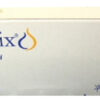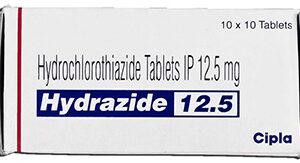Lasix, also known as furosemide, is a medication classified as a loop diuretic. It is primarily used to treat fluid retention (edema) caused by various medical conditions such as congestive heart failure, liver disease, and kidney disorders. Lasix works by increasing the production of urine, which helps the body get rid of excess water and salt. This medication is available in tablet and liquid form, and it is typically taken orally. Following administration, Lasix starts to take effect within one hour and its effects can last for several hours. It is important to note that this medication requires a prescription and should only be used under the supervision of a healthcare professional.
Before taking Lasix, it is crucial to be aware of the potential contraindications associated with this medication. Individuals who are allergic to furosemide or any other components of Lasix should not take this drug, as it can cause severe allergic reactions. Furthermore, Lasix is contraindicated in patients with anuria (inability to urinate) and those with pre-existing electrolyte imbalances or kidney impairments. Pregnant and breastfeeding women should also avoid using Lasix, as it can harm the fetus and pass into breast milk.
Like any medication, Lasix can cause certain side effects. Common side effects include increased frequency of urination, electrolyte imbalances (such as low potassium levels), dizziness, headache, and stomach upset. These side effects are typically mild and temporary. However, if any of these side effects persist or worsen, it is advised to seek medical attention. It is important to note that Lasix may lead to more serious side effects such as hearing loss, increased sensitivity to sunlight, skin reactions, and blood disorders. If any of these severe side effects occur, immediate medical intervention is necessary.
The dosing of Lasix may vary depending on the individual’s medical condition, age, and response to treatment. It is crucial to follow the prescribed dosage instructions provided by the healthcare professional. Typically, the initial oral dose for adults with edema is 20-80 mg per day, divided into two doses. The dose may be adjusted based on the individual’s response. If a dose is missed, it should be taken as soon as remembered, unless it is close to the next scheduled dose. In this case, the missed dose should be skipped to avoid doubling the dose. It is important not to exceed the recommended dosage, as an overdose of Lasix can lead to serious complications such as dehydration, electrolyte imbalances, and kidney damage. In case of overdose, immediate medical attention is necessary.
Lasix may interact with other medications, potentially leading to adverse effects or reduced effectiveness. It is crucial to inform the healthcare professional about all the medications, supplements, and herbal products being taken to avoid any potential drug interactions. Some medications that may interact with Lasix include other diuretics, corticosteroids, nonsteroidal anti-inflammatory drugs (NSAIDs), lithium, certain antihypertensive drugs, and insulin. Additionally, the use of Lasix with certain antibiotics, anticoagulants, and heart medications may require dosage adjustments to minimize potential interactions. It is important to consult with a healthcare professional for personalized advice regarding drug interactions.
-
Can Lasix be taken on an empty stomach?
Lasix can be taken with or without food. However, taking it with food may help reduce stomach upset.
-
Is it safe to drive or operate machinery while taking Lasix?
Lasix may cause dizziness or blurred vision as side effects. If these occur, it is advisable to avoid driving or operating machinery until the effects subside.
-
Can Lasix be taken during pregnancy?
No, Lasix should not be taken during pregnancy as it can cause harm to the fetus. Consult with a healthcare professional for alternative treatment options.
-
Does Lasix interact with grapefruit juice?
Lasix does not interact with grapefruit juice. However, it is always wise to consult with a healthcare professional regarding specific dietary considerations while taking medication.
-
Can Lasix be used in children?
Lasix can be used in children, but the dosage should be determined by a healthcare professional based on the child’s individual needs and condition.






Reviews
There are no reviews yet.